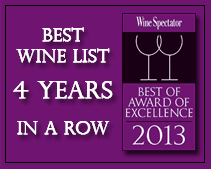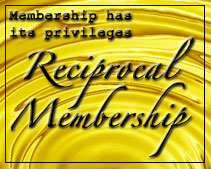The “Korean Wave” in the Philippines
MANILA _ The political alliance between the Philippines and South Korea has a long tradition. During the Cold War era both countries were staunch supporters of the United States. The government in Manila was among the first to send troops to the Korean peninsula to defend the South against the invasion from the communist North.
In today’s globalized world the relations of these East Asian neighbors have assumed a very different flavor characterized mainly by an enormous expansion of interactions not related to the formal political or diplomatic level. “The Philippines and Korea are linked by flows and counterflows of people,” said Dr. Virginia Miralao of the Philippine Social Science Council in a study on the Korean diaspora in the Philippines. Today, the migratory patterns define the bilateral relations between Seoul and Manila more than diplomatic and possibly even economic relations do. It is, therefore, no coincidence that matters pertaining to the situation of Philippine nationals in Korea and Korean nationals in the Philippines are high on the agenda whenever the two governments meet for consultations, as is now the case with the state visit of Korean President Rho, Moo-hyun in Manila.
It is well know that the Philippines has become one of the major exporters of labor on a global scale: The eight million OFWs (Overseas Filipino Workers) who earn a living outside the shores of their own country make up 10 percent of the population. Their remittances have become a pillar of the local economy. Due to a restrictive immigration policy South Korea is not a preferred destination of Philippine migrant workers. According to media reports, there are about 36, 000 Filipinos in South Korea, nearly half of whom are undocumented. It is safe to say that many more Filipinos would like to seek employment in Korea, if for the one reason that ? compared to other destinations ? it is a neighboring country that can be reached easily by plane in less than four hours.
The geographic proximity may also explain why so many Koreans choose to come to the Philippines. We can easily identify various groups of Koreans coming here with different motivations. Let’s start with the tourists, who in recent years have become an increasingly important source of income for the Philippine economy: “While the arrival of European, Japanese and Taiwanese tourists has been greatly reduced, it is being compensated by the substantial increase in the arrival of South Korean tourists,” said Wilson Chan who runs a resort hotel in central Philippines. In many popular tourist areas such as Boracay, Bohol, Cebu or Palawan the Koreans have become the leading customers. Wilson Chan attributes this conspicuous predominance to the fact that “unlike other foreign tourists, Koreans are not so sensitive to bad news in the Philippines.”
Korean tourists, who I have spoken to, like coming to the Philippines because they know they will receive the famed Philippine hospitality. Their hosts also assure that they will be met and taken care of by Korean speaking guides. Apart from this, most hotels and many restaurants provide Korean food, alcoholic beverages and Korean entertainment at night. As a result of all this the market is growing: According to official statistics 370.000 Koreans visited the Philippines in 2004. This year, the Korean Embassy in Manila expects this number to reach half a million.
Apart from the short-term tourists who usually stay less than a week, Philippine media estimate the number of South Koreans who choose to permanently live in the country at 46,000. Typically the Korean migrants are businessmen or traders, students or missionaries. “The Koreans and their ubiquitous signage are everywhere,” noted Raul Palabrica in a newspaper article entitled “Puzzling inward migration to the Philippines.” The influx, he explained, is motivated by the Korean immigrants’ perception that the Philippines promises “a good future for trade and commerce.” It is hard to overlook the growing number of Korean restaurants, groceries and other business establishments in Manila, Cebu and other parts of the Philippines.
One characteristic feature of Korean immigrants in the Philippines is their desire to stay together. “Wherever Koreans move in large numbers they create their own enclaves,” said Dr. Yoon, In-jin, the president of the Korean Migration Research Network and one of the leading scholars of Korean diaspora studies. As soon as the immigrants accumulate sufficient capital, Dr. Yoon added, they invest this in their children’s education. Another focal point of Koreran life in the Philippines is the church, he said: “When Koreans emigrate they establish their own churches and this becomes the center of religious as well as social activities.”
I have heard of some instances in which the churches where already there before the business-oriented migrants came in. There is a growing number of Korean missionaries who come to the Philippines ? a predominantly Roman Catholic nation ? to attract the locals to their Protestant denominations. While the Roman Catholic clergy views these activities with a great sense of suspicion and dismay many ? mostly needy ? Filipinos are open to the foreigners: “The poor go to the Korean churches because they give handouts such as (warm) meals,” said Lorna Makil of Silliman University in Dumaguete, who has conducted field research on the Korean population in her town. According to this scholar, the Korean community in Dumaguete is “a closed group” with very little interaction with the local people. Ms. Makil attributes this isolation to communications problems, as initially only very few immigrants know English, not to mention the local dialects.
As time goes by, the language barrier is falling. Today, many Koreans actually come to the Philippines to learn English either in universities or in one of the numerous private language schools. Some of these institutes cater exclusively to Korean students.
Meanwhile the Philippines, like other Asian countries, has been swept by what is often termed the “Korean wave,” which is basically a steady stream of soap operas “made in Korea.” Prime time on Philippine television has become the time of “Koreanovelas,” said one media watcher. As a result of this you find posters and wallet-sized fan photos of Korean soap opera stars in the Philippine markets. At the same time, numerous Filipino singers and musicians are spreading the happy Pinoy mood in the Land of the Morning Calm.
Pampanga is an important province of the Philippines slated to be the next business and tourism center of the country. Already international traffic prefers the Clark International Airport and tourists find Clark Freeport Zone easier to get around than Manila. Safety, low crime rate, no traffic and low pollution levels all contribute to making Pampanga Angeles City Clark Freeport Zone a preferred destination for local and international tourists.
Best place to unwind in Angeles City Pampanga Philippines is to wine and dine at Yats Restaurant which is also considered as the best restaurant in Clark for group dinners, parties and social functions outside of Manila. Guests of this top rated fine dining resto bar in Clark enjoy the cozy ambience, the spacious dining area as well as the privacy and exclusivity of this top restaurant near Manila in Clark. Some guests wine and dine at this famous restaurant near Angeles City Pampanga for its gourmet food. Others frequently dine at this restaurant in Clark for its fine selection of vintage wines that are offered at attractive prices. Some guests, business executives especially, select this restaurant because of its elegant private dining facilities and the attentive and professional service that the staff provide for a more formal business dinner.
Clark Pampanga is gradually becoming famous for its dining scene. World-class fine dining restaurants, cozy family resto bars and pubs as well as comfortable wine bars are available in Angeles City Clark Pampanga. Wine shops like Clark Wine Center offers exciting shopping for wine lovers coming to buy wine in Clark Freeport.
Clark is fast gaining the reputation from frequent travelers as a highly recommended tourist destination as well as a wonderful location and vacation spots for residents of Manila and Subic
For comments, inquiries and reservations click on Click here for inquiry and reservations
Restaurant@Yats-International.com
(045) 599-5600
0922-870-5178
0917-520-4401
Ask for Pedro and Rechel
Getting to this fine dining restaurant of Angeles City Clark Freeport Zone Pampanga Philippines
How to get to this fine-dining restaurant in Clark Philippines? Once you get to Clark Freeport, go straight until you hit Mimosa. After you enter Mimosa, stay on the left on Mimosa Drive, go past the Holiday Inn and Yats Restaurant (green top, independent 1-storey structure) is on your left. Just past the Yats Restaurant is the London Pub.
Yats Restaurant & Wine Bar
Mimosa Drive past Holiday Inn, Mimosa Leisure Estate,
Clark Freeport Zone, Pampanga, Philippines 2023
Manila Sales Office
3003C East Tower, Phil Stock Exchange Center,
Exchange Rd Ortigas Metro Manila, Philippines 1605
(632) 637-5019 0917-520-4393 Rea or Chay
For any assistance in planning and organizing a wedding ceremony, indoor or outdoor garden reception or to find other wedding service providers, Click here to contact us click here
For assistance in hotel and resort bookings in Clark, Pampanga, Philippines, log on to
http://www.HotelClarkPhilippines.com
To buy wine in Manila, Pampanga, Angeles City, Clark or Subic please log on to http://www. ClarkWineCenter.com
To inquire with the highly recommended beach resort hotel in Clark Pampanga visit http://www.ClearwaterPhililippines.com
For more information about Clark, Pampanga, Philippines log on to
http://www.ClarkPhilippines.com









